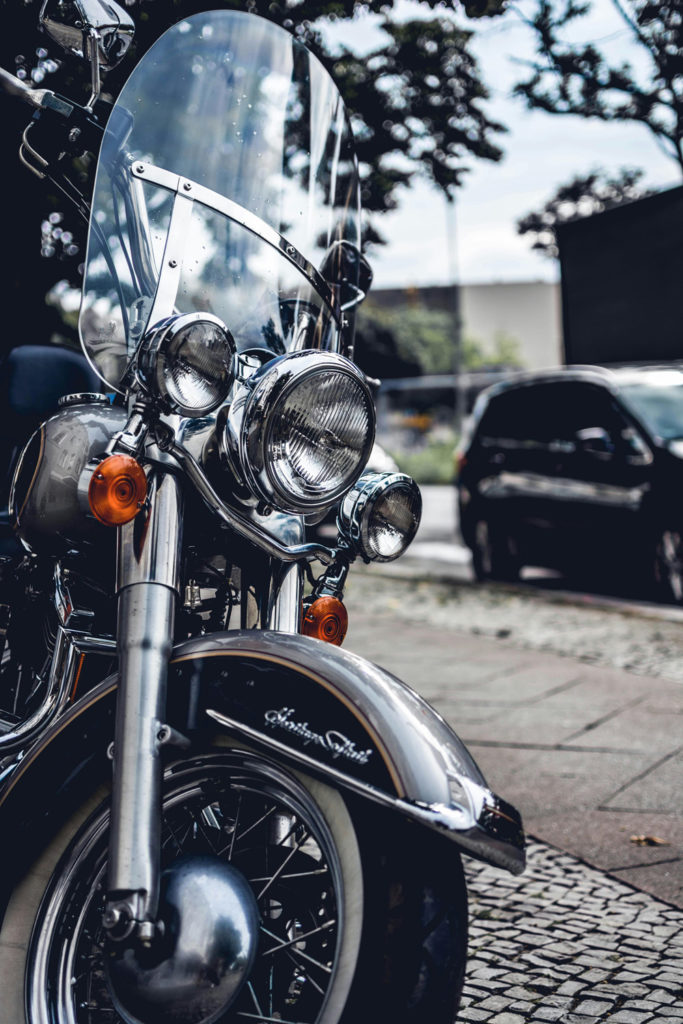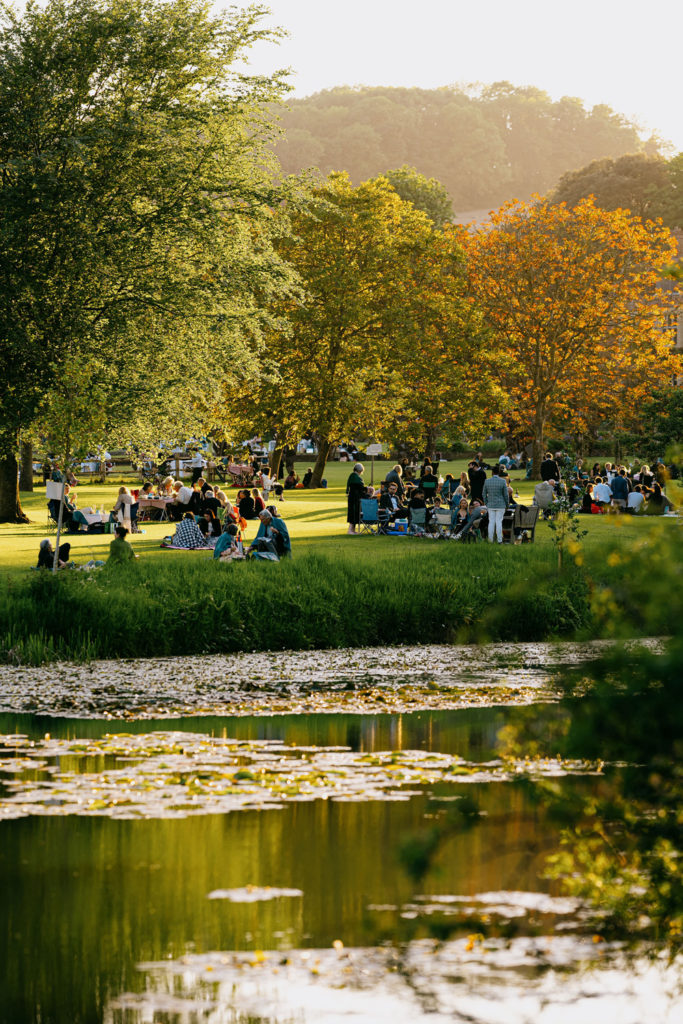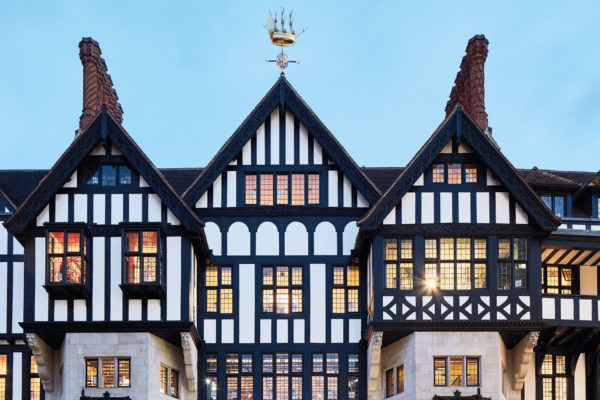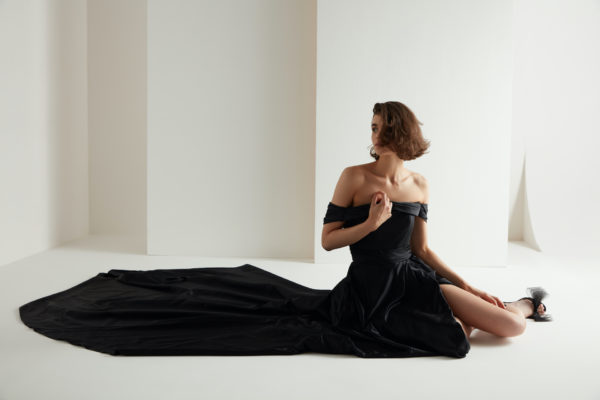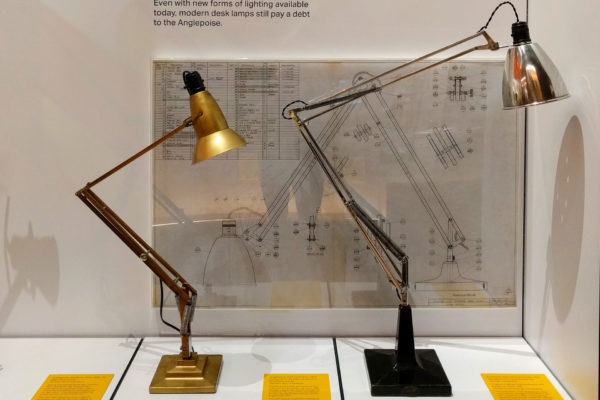The Special Relationship: Are The UK and US Still Friends?
By
2 years ago
From across the pond

How do the Americans view Britain? Josh Glancy ponders whether the special relationship between America and Britain is still, well, special.
How does America view Britain? It’s a question that nags at our diplomats and chief executives alike. Politicians fret over how best to align Britain with its superpower buddy. Marketing gurus agonise over how to crack the vast American market that offers such rich rewards, but has proven a graveyard for brands from Tesco to Robbie Williams.
Is the special relationship still special? Was it ever? Does a British accent, a British suit, a British flag still represent venerability, quality, history? Or are pity and indifference a more common response?
Do we still have a ‘special relationship’?
The reality today is pretty mixed. In the high citadels of liberal US media, modern Britain is perceived as something of a basket case, trapped by the wilful decline of Brexit and in denial over the legacy of empire and colonialism. This is the narrative that has come to dominate coverage of the UK from the likes of CNN and The New York Times.
But it is just one narrative that speaks to one relatively small segment of an enormous country. When most Americans bother to think about Britain at all, it tends to be with a combination of affectionate respect and patronising ‘oh you Brits’ bafflement.
The respect comes from admiration of British history and sophistication. Americans venerate British heritage, most notably the royal family, which remains an obsession for supermarket tabloids and glossy magazines alike. As a foreign correspondent for The Sunday Times in Washington DC, I was never more in demand than when I had a morsel of royal gossip to share with the locals.
American bafflement emanates from our relative poverty, parsimony and lack of air conditioning. From this perspective, Britain is viewed in the way that a wealthy son might see his impecunious father: similar genes, decent guy, but couldn’t get the job done.
Republicans tend to be fairly positive about Britain, admiring our traditions and feeling a sense of Anglo-Saxon kinship. For Democrats, however, Britain is often seen through the prism of Brexit and imperial hangovers; a reliable ally still, but one that has rather gone to seed.
Cultural exports
And yet for all the declinist narratives, Britain still plays a prominent and alluring role in the American imagination. West End theatre, for example, is still viewed as the gold standard. Many of the best plays I saw while living in New York in the late 2010s were London transfers, even when they covered specifically American themes, such as The Lehman Trilogy or Angels in America.
Premier League football, arguably the most successful British brand on the planet, continues to expand its reach in America, with well over a million viewers now tuning in for big games. Like many recent period pieces, Downton Abbey has been an enormous and enduring hit. James Bond is still totemic. And Harry Styles has become so too, greeted in the US today with almost as much fervour as The Beatles were in 1964. Soho House, with its shiny modern take on the traditional British members’ club, has had extraordinary success in New York, Los Angeles and Miami, selling a vision of cosmopolitan class and exclusivity.
London also remains a magnet for a certain type of wealthy, adventurous young American. A world city where you can speak (most of) the language, work for major companies and watch familiar TV shows, but also experience the rootedness and sophistication of Europe, with the Amalfi coast or Aix-en-Provence just a short flight away. Americans in London are baffled by the dearth of first-rate Mexican food, but thrilled to discover that our equivalent cuisine – Indian – is served here at a level beyond anything you’ll find in the US. I’ll never forget the look on my American wife’s face the first time she tried the tiger prawns at Gymkhana.
All of which means that certain types of British brands still resonate strongly with American consumers. Not all brands, by any means – just ask Philip Green. But according to the Department for International Trade, US consumers spend around £12.5bn annually on UK goods and services. In 2018, before the pandemic, almost four million Americans visited the UK, spending an estimated £3.4bn.
Why do British exports hold such cultural capital with Americans?
What’s the appeal? In a quick poll of some Americans I know, the same words came up again and again. ‘Classic.’ ‘Craft.’ ‘Heritage.’ ‘Timeless.’ Americans want from Britain what they can’t get at home: a sense of the ancient. Traditions of craft sustained and developed over centuries. The kinds of products that emerge from a millennia of wealthy, settled living.
Mass market British brands such as Tesco and Topshop failed in the US because America pretty much invented mass production. But higher-end niche products such as Barbour jackets, Hunter wellies, Jo Malone perfume and Farrow & Ball paint all have loyal followings. Americans like the fact that British brands don’t all feel as though they’ve been exploited and expanded beyond all recognition. They seem more personal, somehow. Wealthy Americans in London will try Harrods and Selfridges of course, but the department stores that really get them going are Liberty and Fortnum & Mason, which offer something more distinct.
Most American men are born with a style lobotomy, so aesthetes often gravitate towards elite British clothing brands and I know of several Savile Row tailors who make a tidy living on their tours of America. British gentleman’s brands such as Aquascutum, Huntsman and New & Lingwood offer American dandies a dash of the Beau Brummell that you simply can’t find in New York. Similarly, classic Northamptonshire shoe brands such as Church’s, Edward Green and Crockett & Jones embody the idea of handmade yeoman craft that so tickles a new world parvenu.
The same is true for whisky. It was a pleasant surprise to me upon moving to America that I was able to order my favourite – and not particularly famous – Scotch, Oban, in bars across the country. (Though of course I had to pronounce it phonetically, ‘O-Ban’, and not correctly, ‘O-Bun’). But it makes sense really. Kentucky bourbon can play all it likes on pioneer and prohibition themes, but if you really care about quality then nothing can match a Talisker or a Laphroaig for a timeworn and peaty sense of place.
It’s true that underlying these affiliations is a depressing ‘OMG that’s soooo cute’ fetishisation that sometimes characterises American attitudes to Britain. Some behave as though they are visiting a Disneyfied heritage park. Others can’t tell the difference between the Cotswolds and Cornwall.
Are Americans only interested in a tweedy Downton-ised pastiche of Britain? There’s certainly some accuracy to this critique. But among the more discerning, there is also a genuine sense that for all its travails, Britain offers something that America does not. Americans look to Britain to fill in their back story. To offer the wit and wisdom and cultivation that were somehow lost in the breakneck quest to build a new world. And to sell them products they simply forgot how to make.
Illustration: Rosie Hunter

